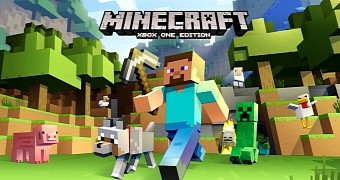The biggest news of the week was the fact that Microsoft and Mojang officially announced that they concluded a deal which would see the small indie developer and its very successful Minecraft become property of the publisher and platform holder.
The final terms of the deal are not all public, but the two companies have explained that the video game will be impacted in very insignificant ways for the foreseeable future, although bigger changes might be implemented for future versions.
Aside from the actual business deal, Markus Persson, aka Notch, has offered explanations for the decision to leave the company and Minecraft in order to focus on other projects.
An official statement from Mojang says that he “doesn’t want the responsibility of owning a company of such global significance. Over the past few years he’s made attempts to work on smaller projects, but the pressure of owning Minecraft became too much for him to handle. The only option was to sell Mojang. He’ll continue to do cool stuff though. Don’t worry about that.”
In a more personal letter to fans, the game creator, who was the creative force behind the early development of Minecraft, says that his actual sanity was on the line if he continued to work on the title.
Creators and their responsibilities
Markus Persson has become a legendary figure in the indie gaming world and many of those who play Minecraft link the experience directly to him.
Because the developer has a solid presence on social media and tends to interact with the player base, a lot of requests, thanks and abuse are directed at him, and that can become both a burden and a distraction, especially given how quickly the fan community has been expanding.
But claims that the sanity of the developer is affected and that he is feeling responsible for a global phenomenon seem a little exaggerated when one looks at the wider picture and sees that we are dealing with a video game and those who invest time and money in it.
Big words and big money
The acquisition of Mojang cost Microsoft no less than 2.5 billion dollars (1.75 billion Euro), which is a lot of money for an indie title.
Notch will get his fair share of the sum and can use it however he wants, to fund new game development, to give to charity, or he could simply stash it away.
He could have taken the money and put a part of it in activities to reduce the stress he was feeling or he could have simply stepped away from social media for a while in order to be less exposed to the fans and to their demands.
Pressure is something all human beings experience at one point or another, and it should not be brought up by very successful developers as a way to justify their decision to cash out and try something new.
Their actions might be justified in the end and fans might have stepped over the line in their interactions at times, but Notch seemed to discover his great responsibility only when Microsoft came knocking with a huge wad of cash.

 14 DAY TRIAL //
14 DAY TRIAL //